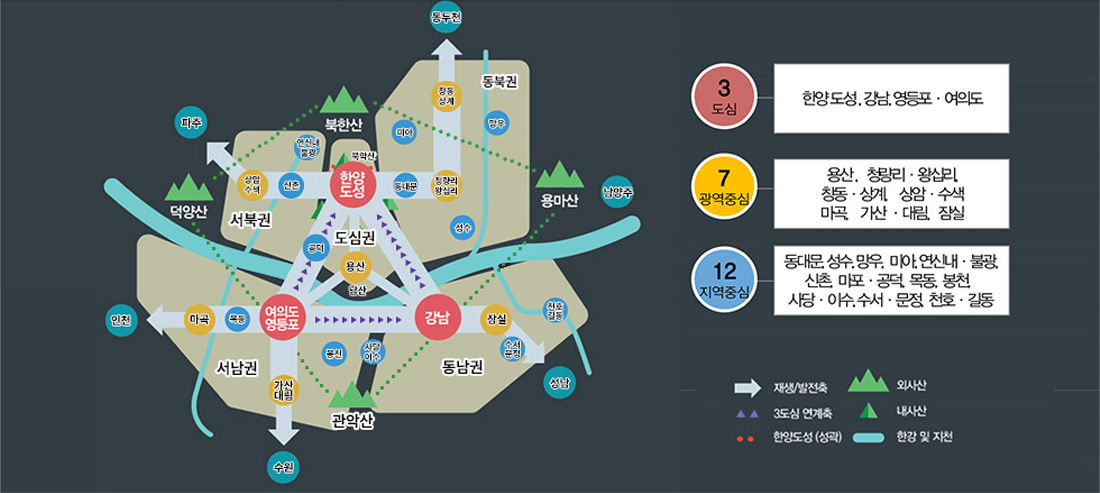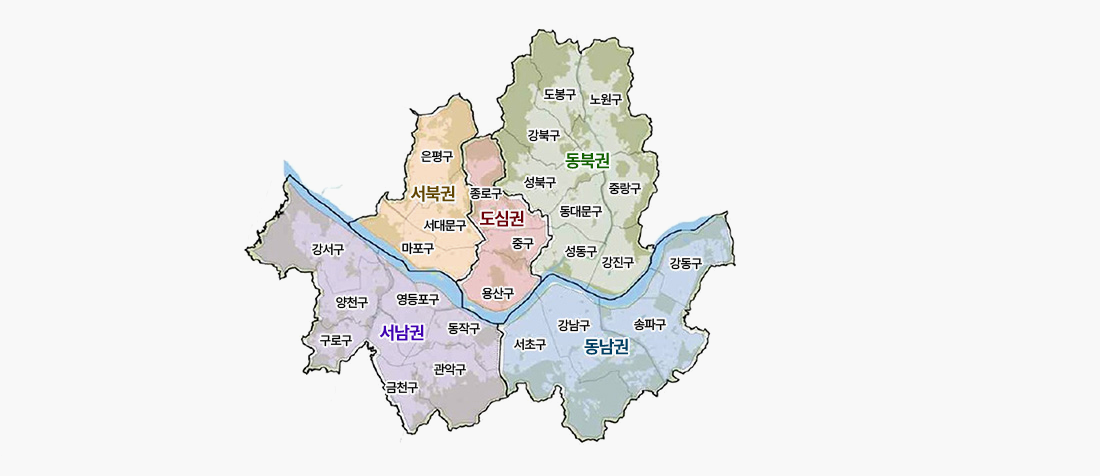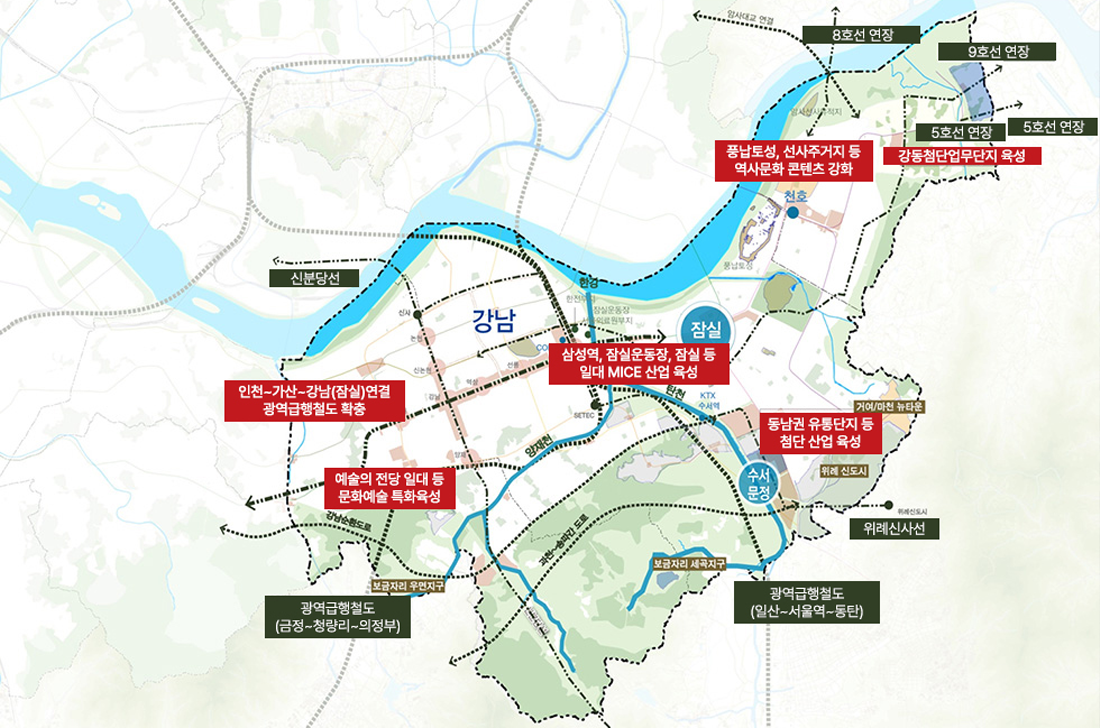2030 Seoul Plan
'2030 Seoul Plan,' established in 2013, serves as the highest-level spatial plan that takes precedence over sectoral plans and policies related to spatial structure and land use. It integrates and coordinates all sectoral plans and policies through spatial structure and land use,
and provides guidelines for establishing lower-level urban management plans.
Seoul's Next 100 Years: Fundamental Change in Urban Management Paradigm
The 2030 Seoul spatial structure reflects the future vision to realize a spatial structure of communication and consideration, and reorganizes to implement goals and strategies for socioeconomic changes surrounding Seoul and the metropolitan area and five core issues.
Accordingly, the spatial structure was established with basic directions of: 1. Active maintenance of Seoul's unique natural and historical-cultural heritage; 2. Reorganization of center system for urban competitiveness and balanced regional development; and 3. Creation of metropolitan development axis for communication and mutual development.
2030 Seoul Plan | Spatial Structur

Classification of Living Zones
Living zones are divided into five major areas (large living zones): Downtown Living Zone, Northeast Living Zone, Northwest Living Zone, Southwest Living Zone, and Southeast Living Zone, considering not only natural and physical environments but also central functions and land use characteristics comprehensively.
2030 Seoul Plan | Classification of Living Zones

Southeast Living Zone Development Plan
Will be promoted under the direction of "Strengthening global business and commercial functions and planned management of existing residential areas" for continuous growth as a business-commercial center and maintenance/enhancement of pleasant urban living environment.
Planning tasks will be pursued in 5 areas: 1. Central districts and jobs; 2. Residential area management and improvement; 3. Transportation system improvement; 4. Living infrastructure; and 5. Regional specialization.
-
Central Districts/Jobs: Develop Gangnam-Samseong area as international business and MICE industry center
-
Transportation System Improvement: Strengthen traffic demand management (encourage shift from private cars to public transit). Establish transportation system responding to metropolitan traffic demands (KTX, Wirye-Sinsa Line, Subway Line 9 extension, Southern Express Railway)
-
Living Infrastructure: Create waterfront network centered on Han River-Tancheon-Yangjaecheon
-
Regional Specialization: Strengthen global business functions through MICE industry specialization and development
2030 Seoul Plan | Southeast Living Zone Development Concept

